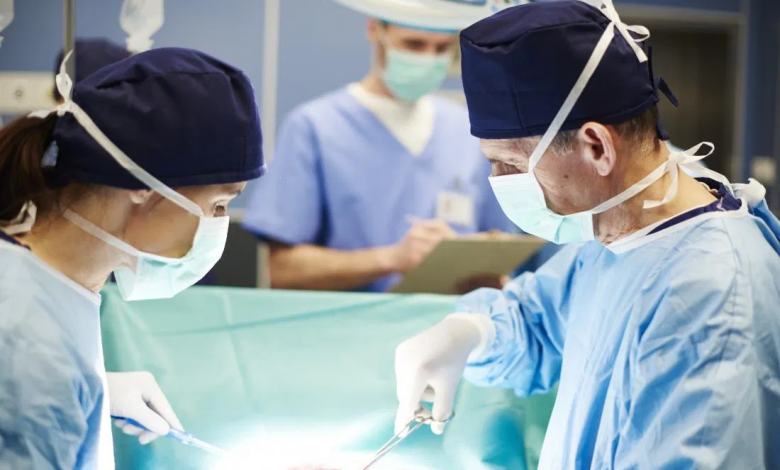Kidney Transplant: What To Expect?

If your kidneys are not functioning normally, waste fluids and minerals start to accumulate in your bloodstream. Although dialysis is one way to treat your dysfunctional kidneys, you can also go for kidney transplant surgery. It will not only give you some extra freedom with your routine life but also make you feel much better and energetic.
So, what is kidney transplant? Here’s what you need to know about kidney transplant surgery and what to expect from it.
An Overview
A kidney transplant refers to the surgical procedure in which a healthy kidney is removed from a deceased, or living, donor to be placed into a patient with dysfunctional kidneys.
It is a well-known fact that kidneys, the bean-shaped organs positioned on each side of the spine, are one of the vital organs of the human body. Their primary function is to filter out and remove fluid, minerals, and waste from the blood through urine.
However, when your kidneys fail to function normally or lose their filtering ability, harmful levels of waste and fluid start to accumulate in the body, which ultimately results in raised blood pressure or kidney failure (end-stage kidney disease). In fact, kidney failure or end-stage renal disease usually occurs when the kidneys lose about 90% of their ability to function normally.
There are certain common causes of end-stage kidney disease, some of which include:
- Chronic blood pressure
- Diabetes
- Polycystic kidney disease
- Chronic Glomerulonephritis
People who’re suffering from end-stage renal disease need to get waste minerals and fluid removed from their bloodstream through a machine or a kidney transplant surgery in order to stay alive.
Why is Kidney Transplant Done?
There are mainly three types of kidney transplant:
- Living donor kidney transplant
- Deceased donor kidney transplant
- Pre-emptive kidney transplant
As a matter of fact, a kidney transplant surgery is often the treatment of choice for people with kidney failure. Compared with a lifetime on machine dialysis, a kidney transplant is a much better alternative. A kidney transplant surgery not only helps in treating your end-stage renal disease or kidney failure but also makes you live longer and feel better. A kidney transplant is generally associated with:
- Enhanced life quality
- Lowered death risk
- Specific dietary restrictions
- Low treatment costs
Risks Associated With Kidney Transplant
Even though a kidney transplant surgery can effectively treat kidney failure and other kidney ailments, it is not a permanent cure, and there are certain risks associated with it.
- Complications of the Surgery – A kidney transplant surgery carries the risk of certain significant complications, such as:
- Bleeding
- Blood clots
- Infection
- Heart attack or stroke
- Rejection or failure of the donor’s kidney
- Infection transmitted from the donor’s kidney
- Blockage of the ureter (a tube that connects the kidney to the bladder)
- Anti-Rejection Medication Side Effects – After your kidney transplant surgery is done, you’ll have to take necessary medications in order to prevent the rejection of donated kidney by your body. These medications can cause several side effects like:
- Bone damage (Osteonecrosis)
- Bone thinning (Osteoporosis)
- High blood pressure
- Diabetes
- Excessive hair loss
- High cholesterol
What To Expect From A Kidney Transplant?
There are many significant things that you need to take care of before undergoing a kidney transplant.
- Before the surgery – First of all, you need to find the right match for your kidney. There are numerous factors that your medical team will consider while analyzing whether the donated kidney is a good match for you. Some of these factors include:
- Blood Typing
- Tissue Typing
- Crossmatch
- Kidney size
- Matching age
- Infection exposure
- During the Surgery – Kidney transplant surgery is usually done with general anesthesia. However, the surgical team monitors your blood pressure, blood oxygen, and heart rate throughout the surgery.
- After the surgery – After your kidney transplant surgery is done, you can expect to:
- Spend several days in the hospital – Your medical team will constantly monitor your health to look out for any signs of complications.
- Undergo frequent health checkups as you recover – after you leave the hospital, close monitoring is extremely important for you. So, ensure that you undergo frequent medical tests and checkups in order to track your recovery.
- Take necessary medications – You will have to take certain necessary medications, post your kidney transplant surgery, to reduce the risks of complications.
Results
After a successful kidney transplant surgery, your new kidney will start to function normally, thereby eliminating your need for a machine dialysis. Make sure you take all the necessary medications, as your doctor prescribes. In case you have any side effects, contact your medical team immediately for instant medical assistance.

